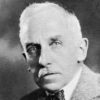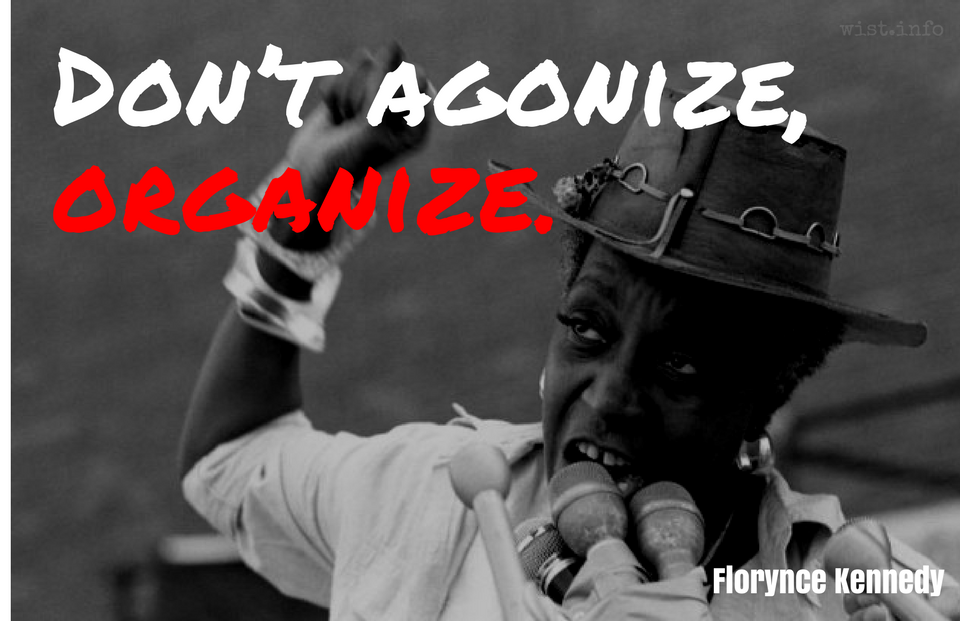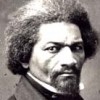Standing up to your government can mean standing up for your country.
Bill Moyers (b. 1934) American journalist and public commentator
Closing comments, NOW (PBS) (2003-02-28)
(Source)
Regarding patriotism and opposition to the impending war in Iraq. Moyers quoted the comments in a speech to National Conference for Media Reform (St Louis) (2005-05-15); the phrase is often cited to that occasion.
Quotations about:
resistance
Note not all quotations have been tagged, so Search may find additional quotes on this topic.
Children live in occupied territory. The brave and the foolhardy openly rebel against authority, whether harsh or benign. But most tread warily, outwardly accommodating themselves to alien mores and edicts while living in secret their iconoclastic and subversive lives.
P. D. James (1920-2014) British mystery writer [Phyllis Dorothy James White]
Time To Be in Earnest: A Fragment of Autobiography, “Diary 1997” (1999)
(Source)
The pack of this world was a kind of pleasant weight upon me, as happens in sleep, and the thoughts in which I meditated on you were like the efforts of someone who tries to get up but is so overcome with drowsiness that he sinks back again into sleep. Of course no one wants to sleep forever, and everyone in his senses would agree that it is better to be awake; yet all the same, when we feel a sort of lethargy in our limbs, we often put off the moment of shaking off sleep, and, even though it is time to get up, we gladly take a little longer in bed, conscious though we may be that we should not be doing so. In just the same way I was quite certain that it was better to give myself up to your charity rather than to give in to my own desires; but, though the former course was a conviction to which I gave my assent, the latter was a pleasure to which I gave my consent.
[Ita sarcina saeculi, velut somno adsolet, dulciter premebar, et cogitationes quibus meditabar in te similes erant conatibus expergisci volentium, qui tamen superati soporis altitudine remerguntur. Et sicut nemo est qui dormire semper velit omniumque sano iudicio vigilare praestat, differt tamen plerumque homo somnum excutere cum gravis torpor in membris est, eumque iam displicentem carpit libentius quamvis surgendi tempus advenerit: ita certum habebam esse melius tuae caritati me dedere quam meae cupiditati cedere, sed illud placebat et vincebat, hoc libebat et vinciebat.]
Augustine of Hippo (354-430) Christian church father, philosopher, saint [b. Aurelius Augustinus]
Confessions, Book 8, ch. 5 / ¶ 12 (8.4.12) (c. AD 398) [tr. Warner (1963)]
(Source)
(Source (Latin)). Alternate translations:
Thus with the baggage of this present world was I held down pleasantly, as in sleep: and the thoughts wherein I meditated on Thee were like the efforts of such as would awake, who yet overcome with a heavy drowsiness, are again drenched therein. And as no one would sleep for ever, and in all men's sober judgment waking is better, yet a man for the most part, feeling a heavy lethargy in all his limbs, defers to shake off sleep, and though half displeased, yet, even after it is time to rise, with pleasure yields to it, so was I assured that much better were it for me to give myself up to Thy charity, than to give myself over to mine own cupidity; but though the former course satisfied me and gained the mastery, the latter pleased me and held me mastered.
[tr. Pusey (1838)]
Thus with the baggage of the world was I sweetly burdened, as when in slumber; and the thoughts wherein I meditated upon Thee were like unto the efforts of those desiring to awake, who, still overpowered with a heavy drowsiness, are again steeped therein. And as no one desires to sleep always, and in the sober judgment of all waking is better, yet does a man generally defer to shake off drowsiness, when there is a heavy lethargy in all his limbs, and, though displeased, yet even after it is time to rise with pleasure yields to it, so was I assured that it were much better for me to give up myself to Thy charity, than to yield myself to my own cupidity; but the former course satisfied and vanquished me, the latter pleased me and fettered me.
[tr. Pilkington (1876)]
Thus with the baggage of this world I was sweetly pressed down, as it happens in sleep ; and the thoughts by which I meditated on Thee were like the efforts of those who would awake, but who being overpowered by deep drowsiness, are again immersed therein. And as no one wishes to be always asleep, and in the sound judgment of all men waking is better; yet often does a man, when a heavy drowsiness is upon his limbs, defer to shake off sleep, and though not approving it, yet even when the time to rise has come, more willingly encourage it; so was I convinced that it was better for me to surrender myself to Thy Charity, than to yield myself up to my own lusts; but the former course approved itself and convinced me, the latter pleased me and held me bound.
[tr. Hutchings (1890)]
So the heavy burden of the world seemed delightful, as in a dream, and my musings on Thee were like the struggles of one who would awake, but falls back overcome by depths of slumber. And as no one wishes to sleep for ever, for all men rightly count waking better, and yet a man will not break his slumber when his limbs are heavy with drowsiness, and is glad to sleep on, though his reason disapproves and the hour for rising has struck, so I knew for certain that it was better to yield to Thy love than to my lust, but the love charmed and could not prevail, the lust pleased and bound me.
[tr. Bigg (1897), 8.5.2]
I was held down as agreeably by this world’s baggage as one often is by sleep; and indeed the thoughts with which I meditated upon You were like the efforts of a man who wants to get up but is so heavy with sleep that he simply sinks back into it again. There is no one who wants to be asleep always -- for every sound judgment holds that it is best to be awake -- yet a man often postpones the effort of shaking himself awake when he feels a sluggish heaviness in the limbs, and settles pleasurably into another doze though he knows he should not, because it is time to get up. Similarly I regarded it as settled that it would be better to give myself to Your love rather than go on yielding to my own lust; but the first course delighted and convinced my mind, the second delighted my body and held it in bondage.
[tr. Sheed (1943)]
Thus with the baggage of the world I was sweetly burdened, as one in slumber, and my musings on thee were like the efforts of those who desire to awake, but who are still overpowered with drowsiness and fall back into deep slumber. And as no one wishes to sleep forever (for all men rightly count waking better) -- yet a man will usually defer shaking off his drowsiness when there is a heavy lethargy in his limbs; and he is glad to sleep on even when his reason disapproves, and the hour for rising has struck -- so was I assured that it was much better for me to give myself up to thy love than to go on yielding myself to my own lust. Thy love satisfied and vanquished me; my lust pleased and fettered me.
[tr. Outler (1955)]
Thus by the burdens of this world I was sweetly weighed down, just as a man often is in sleep. Thoughts wherein I meditated upon you were like the efforts of those who want to arouse themselves but, still overcome by deep drowsiness, sink back again. Just as no man would want to sleep forever, and it is the sane judgment of all men that it is better to be awake, yet a man often defers to shake off sleep when a heavy languor pervades all his members, and although the time to get up has come, he yields to it with pleasure even although it now irks him. In like manner, I was sure that it was better for me to give myself up to your love than to give in to my own desires. However, although the one way appealed to me and was gaining mastery, the other still afforded me pleasure and kept me victim.
[tr. Ryan (1960)]
In fact I bore the burden of the world as contentedly as one sometimes bears a heavy load of sleep. My thoughts, as I meditated upon you, were like the efforts of a man who tries to wake but cannot and sinks back into the depths of slumber. No one wants to sleep forever, for everyone rightly agrees that it is better to be awake. Yet a man often staves off the effort to rouse himself when his body is leaden with inertia. He is glad to settle down once more, although it is against his better judgement and it is already time he were up and about. In the same way I was quite sure that it was better for me to give myself up to your love than to surrender to my own lust. But while I wanted to follow the first course and was convinced that it was right, I was still a slave to the pleasures of the second.
[tr. Pine-Coffin (1961)]
So, as happens in a drowsiness, was I pleasantly loaded with the baggage of this world, and the thoughts I had in mind of you were like the struggles of those who want to wake up, but overcome by deep sleep are drowned in it again. And just as there is no one who wants to go on sleeping for ever (for in any sane man’s judgment it is better to stay awake), still a man does often postpone shaking off sleep, when he feels a heavy lethargy through all his limbs, and in spite of himself is prone to doze again, when often it is time to rise, in just such a fashion, I was certain that it was better to surrender to your love than to give in to my desire. The former course pleased and convinced me; the latter seduced me and held me prisoner.
[tr. Blaiklock (1983)]
I was thus weighed down by the pleasant burden of the world in the way one commonly is by sleep, and the thoughts with which I attempted to meditate upon you were like the efforts of people who are trying to wake up, but are overpowered and immersed once more in slumberous deeps. No one wants to be asleep all the time, and it is generally agreed among sensible people that being awake is a better state, yet it often happens that a person puts off the moment when he must shake himself out of sleep because his limbs are heavy with a lassitude that pulls him toward the more attractive alternative, even though he is already trying to resist it and the hour for rising has come; in a similar way I was quite sure that surrendering myself to your love would be better than succumbing to my lust, but while the former course commended itself and was beginning to conquer, the latter charmed and chained me.
[tr. Boulding (1997)]
Books aren’t just commodities; the profit motive is often in conflict with the aims of art. We live in capitalism, its power seems inescapable — but then, so did the divine right of kings. Any human power can be resisted and changed by human beings. Resistance and change often begin in art. Very often in our art, the art of words.
Ursula K. Le Guin (1929-2018) American writer
Speech, accepting the National Book Foundation Medal (19 Nov 2014)
(Source)
On receiving the National Book Foundation Medal for Distinguished Contribution to American Letters at the 65th National Book Awards. Video of the speech.
We would therefore argue that strength of character turns to obstinacy as soon as a man resists another point of view, not from some superior insight or attachment to some higher principle, but because he objects instinctively.
[Wir sagen also: die Charakterstärke wird zum Eigensinn, sobald das Widerstreben gegen fremde Einsicht nicht aus besserer Überzeugung, nicht aus Vertrauen auf einen höheren Grundsatz, sondern aus einem widerstrebenden Gefühl entsteht.]
Karl von Clausewitz (1780-1831) Prussian soldier, historian, military theorist
On War [Vom Kriege], Book 1, ch. 3 “On Military Genius [Der Kriegerische Genius],” (1.3) (1832) [tr. Howard & Paret (1976)]
(Source)
(Source (German)). Alternate translations:
We say therefore, force of character degenerates into obstinacy whenever the resistance to opposing judgment proceeds not from better convictions or a reliance upon a more trustworthy maxim, but from a feeling of opposition.
[tr. Graham (1873)]
We say, therefore, strength of character becomes obstinacy as soon as resistance to an opposing judgment proceeds not from a better conviction or reliance upon a higher principle, but from a feeling of opposition.
[tr. Jolles (1943)]
Few of us take the pains to study the origin of our cherished convictions; indeed, we have a natural repugnance to so doing. We like to continue to believe what we have been accustomed to accept as true, and the resentment aroused when doubt is cast upon any of our assumptions leads us to seek every manner of excuse for clinging to them. The result is that most of our so-called reasoning consists in finding arguments for going on believing as we already do.
James Harvey Robinson (1863-1936) American historian and educator
The Mind in the Making, ch. 4 “Rationalizing” (1921)
(Source)
The first impression is readily received. We are so constituted that we believe the most incredible things; and, once they are engraved upon the memory, woe to him who would endeavor to efface them.
[Der erste Eindruck findet uns willig, und der Mensch ist gemacht, daß man ihn das Abenteuerlichste überreden kann; das haftet aber auch gleich so fest, und wehe dem, der es wieder auskratzen und austilgen will!]
Johann Wolfgang von Goethe (1749-1832) German poet, statesman, scientist
The Sorrows of Young Werther, Book 1, “August 15” (1774) [tr. Boylan]
(Source)
Alt. trans.:
- "... woe to him who would endeavor to erase them!" [tr. Lange, Ryan]
- "The first impression finds us receptive, and man is so made that he can be persuaded by the most outlandish things; but it strikes root so immediately that woe to him who tries to scratch it out and eradicate it!" [tr. Pike (2004)]
- Original German.
For the lesson of such stories is simple and within everybody’s grasp. Politically speaking, it is that under conditions of terror, most people will comply but some people will not, just as the lesson of the countries to which the Final Solution was proposed is that “it could happen” in most places but it did not happen everywhere. Humanly speaking, no more is required, and no more can reasonably be asked, for this planet to remain a place fit for human habitation.
Hannah Arendt (1906-1975) German-American philosopher, political theorist
Eichmann in Jerusalem: A Report on the Banality of Evil, ch. 14 (1963)
(Source)
Speaking of resistance to Nazi atrocities.
And just as the law in civilized countries assumes that the voice of conscience tells everybody, “Thou shalt not kill,” even though man’s natural desires and inclinations may at times be murderous, so the law of Hitler’s land demanded that the voice of conscience tell everybody: “Thou shalt kill,” although the organizers of the massacres knew full well that murder is against the normal desires and inclinations of most people. Evil in the Third Reich had lost the quality by which most people recognize it — the quality of temptation.
Hannah Arendt (1906-1975) German-American philosopher, political theorist
Eichmann in Jerusalem: A Report on the Banality of Evil, ch. 8 (1963)
(Source)
I’d rather die on my feet, than live on my knees.
[Prefiero morir de pie que vivir de rodillas.]
Emiliano Zapata 1879-1919) Mexican revolutionary, reformer [Emiliano Zapata Salazar]
(Attributed)
Often misattributed to Che Guevara, José Martí, and other revolutionaries. Popularized by "La Pasionaria" Dolores Ibárruri, during her speeches and broadcasts in the Spanish Civil War. More discussion here.
Alternate versions/translations:
- "I'd prefer to die standing, than to live always on my knees! [¡Prefiero morir de pie que vivir siempre arrodillado!]"
- "Men of the South! It is better to die on your feet than to live on your knees!"
- "I would rather die standing than live on my knees!"
- "It is better to die on your feet than to live on your knees!"
- "I prefer to die standing than to live forever kneeling."
- "Prefer death on your feet to living on your knees."
One great secret of the art of politics all over the world is never to push evil or beneficial measures to that point where resistance commences on the part of the governed.
Edwin Percy Whipple 1819-1886) American essayist and critic
“Character” (1857), Character and Characteristic Men (1866)
(Source)
He said the wicked know that if the ill they do be of sufficient horror men will not speak against it. That men have just enough stomach for small evils and only these will they oppose.
Cormac McCarthy (1933-2023) American novelist, playwright, screenwriter
The Crossing (2010)
(Source)
Reason allows us to determine when our wishes are in irrevocable conflict with reality, and then bids us to submit ourselves willingly, rather than angrily or bitterly, to necessities. We may be powerless to alter certain events, but we remain free to choose our attitude towards them, and it is in our spontaneous acceptance of necessity that we find our distinctive freedom.
Alain de Botton (b. 1969) Swiss-British author
The Consolations of Philosophy, ch. 3 “Consolation for Frustration”(2000)
(Source)
The authentic human being is one of us who instinctively knows what he should not do and, in addition, will balk at doing it. He will refuse to do it, even if this brings down dread consequences to him and those whom he loves. This, to me, is the ultimately heroic trait of ordinary people. They say “no” to the tyrant and they calmly take the consequences of this resistance. Their deeds may be small, and almost always unnoticed, unmarked by history. Their names are not remembered, nor did these authentic humans expect their names to be remembered. I see their authenticity in an odd way: not in their willingness to perform great heroic deeds, but in their quiet refusals to commit villainies. In essence, they cannot be compelled to be what they are not.
Don’t agonize, organize.
Florynce "Flo" Kennedy (1916-2000) American lawyer, feminist, civil rights activist
(Attributed)
(Source)
Quoted in Gloria Steinem, "The Verbal Karate of Florynce R. Kennedy, Esq.," Ms. (Mar 1973).
I resist, therefore I am.
James W. "Jim" Douglass (b. 1937) American author, activist, Christian theologian
“Revolution through Solitude,” Resistance and Contemplation (1972)
(Source)
As has been pointed out so often, it is characteristic of mankind to make as little adjustment as possible in customary ways in the face of new conditions; the process of social change is epitomized in the fact that the first Packard car body delivered to the manufacturers had a whipstock on the dashboard.
Robert Lynd (1892-1970) American sociologist [Robert Slaughton Lynd]
Middletown, ch. 29 (1929) [with Helen Lynd]
(Source)
The biggest sin is sitting on your ass.
Florynce "Flo" Kennedy (1916-2000) American lawyer, feminist, civil rights activist
(Attributed)
(Source)
Quoted in Gloria Steinem, "The Verbal Karate of Florynce R. Kennedy, Esq.," Ms. (Mar 1973).
Full quote: "Some people say they won’t work 'inside the system' -- they’re 'waiting for the revolution.' Well, when the ramparts are open, honey, I'll be there. But until then, I'm going to go right on zapping the business and government delinquents, the jockocrats, the fetus fetishists, and all the other niggerizers any way I can. The biggest sin is sitting on your ass."
In general, every evil to which we do not succumb is a benefactor. As the Sandwich Islander believes that the strength and valor of the enemy he kills passes into himself, so we gain the strength of the temptation we resist.
Ralph Waldo Emerson (1803-1882) American essayist, lecturer, poet
“Compensation,” Essays: First Series (1841)
(Source)
Some folk have been clearly rid of such pestilent fancies with very full contempt of them, making a cross upon their hearts and bidding the devil avaunt. And sometimes they laugh him to scorn, too, and then turn their mind unto some other matter. And when the devil hath seen that they have set so little by him, after certain essays, made in such times as he thought most fitting, he hath given that temptation quite over. And this he doth not only because the proud spirit cannot endure to be mocked, but also lest, with much tempting the man to the sin to which he could not in conclusion bring him, he should much increase his merit.
Thomas More (1478-1535) English lawyer, social philosopher, statesman, humanist, Christian martyr
Dialogue of Comfort Against Tribulation, Book 2, sec. 16 (1553)
(Source)
More often elided/paraphrased as "The devil ... the proud spirit cannot endure to be mocked" or "The devil, that proud spirit, cannot endure to be mocked."
C. S. Lewis used a mis-elided version as an epigraph to The Screwtape Letters (1942): "The devil ... the prowde spirit ... cannot endure to be mocked."
Sometimes given in the original (?) spellings: "The deuill ... the prowde spirit, cannot endure to be mock'd."
Being a lover of freedom, when the revolution came in Germany, I looked to the universities to defend it, knowing that they had always boasted of their devotion to the cause of truth; but, no, the universities immediately were silenced. Then I looked to the great editors of the newspapers whose flaming editorials in days gone by had proclaimed their love of freedom; but they, like the universities, were silenced in a few short weeks. Then I looked to individual writers who, as literary guides of Germany, had written much and often concerning the place of freedom in modern life; but they, too, were mute.
Only the church stood squarely across the path of Hitler’s campaign for suppressing truth. I never had any special interest in the church before, but now I feel a great affection and admiration because the church alone has had the courage and persistence to stand for intellectual truth and moral freedom. I am forced thus to confess that what I once despised I now praise unreservedly.
Albert Einstein (1879-1955) German-American physicist
(Disputed)
Regarding the rise of the Nazi party in Germany. Originally attributed in S. Parkes Cadman, "The Conflict Between Church And State In The Third Reich," La Crosse Tribune and Leader-Press (28 Oct 1934), noted as a "free translation" made by a colleague of the writer. Made famous in being quoted in Time (23 Dec 1940). Einstein himself said that he'd said something like this to a journalist, noting that the only German intellectuals supporting individual rights and intellectual freedom in the early Nazi regime were a few churchmen. He later suggested that his words on the matter had been significantly exaggerated, and issued much more critical statements about how the Catholic Church, in particular, had been silent or collaborated with the Nazi regime. More discussion here and here.
Under a tyranny, most friends are a liability. One quarter of them turn “reasonable” and become your enemies, one quarter are afraid to speak, and one quarter are killed and you die with them. But the blessed final quarter keep you alive.
Find out just what any people will quietly submit to, and you have found out the exact amount of injustice and wrong which will be imposed upon them; and these will continue till they are resisted with either words or blows, or with both. The limits of tyrants are prescribed by the endurance of those whom they oppress.
We have borne patiently a great deal of wrong, on the consideration that if nations go to war for every degree of injury, there would never be peace on earth. But when patience has begotten false estimates of it’s motives, when wrongs are pressed because it is believed they will be borne, resistance becomes morality.
Thomas Jefferson (1743-1826) American political philosopher, polymath, statesman, US President (1801-09)
Letter to Anne-Louise-Germaine Necker, Baronne de Staël-Holstein (16 Jul 1807)
(Source)
Let them take arms. The remedy is to set them right as to facts, pardon and pacify them. What signify a few lives lost in a century or two? The tree of liberty must be refreshed from time to time with the blood of patriots and tyrants. It is it’s natural manure.
Thomas Jefferson (1743-1826) American political philosopher, polymath, statesman, US President (1801-09)
Letter to William Stephens Smith (13 Nov 1787)
(Source)
I hold it that a little rebellion now and then is a good thing, & as necessary in the political world as storms in the physical. Unsuccessful rebellions indeed generally establish the incroachments on the rights of the people which have produced them. An observation of this truth should render honest republican governors so mild in their punishment of rebellions, as not to discourage them too much. It is a medecine necessary for the sound health of government.
Thomas Jefferson (1743-1826) American political philosopher, polymath, statesman, US President (1801-09)
Letter to James Madison (30 Jan 1787)
(Source)
Referring to Shays' Rebellion. See his contemporaneous letter to Abigail Adams.
When bad men combine, the good must associate; else they will fall, one by one, an unpitied sacrifice in a contemptible struggle.
Edmund Burke (1729-1797) Anglo-Irish statesman, orator, philosopher
“Thoughts on the Cause of the Present Discontents” (23 Apr 1770)
May be the origin of the attributed (but never located in Burke's works): "The only thing necessary for the triumph of evil is for good men to do nothing." See also Mill.
The spirit of resistance to government is so valuable on certain occasions, that I wish it to be always kept alive. It will often be exercised when wrong, but better so than not to be exercised at all. I like a little rebellion now and then. It is like a storm in the Atmosphere.
Thomas Jefferson (1743-1826) American political philosopher, polymath, statesman, US President (1801-09)
Letter to Abigail Adams (22 Feb 1787)
(Source)
Referring to Shays' Rebellion. See his contemporary letter to James Madison.
Most of us are about as eager to be changed as we were to be born, and go through our changes in a similar state of shock.
James Baldwin (1924-1987) American novelist, playwright, activist
“Every Good-Bye Ain’t Gone,” New York Times (19 Dec 1977)
(Source)
Reprinted in The Price of the Ticket (1985).
And can history produce an instance of a rebellion so honourably conducted? I say nothing of it’s motives. They were founded in ignorance, not wickedness. God forbid we should ever be 20. years without such a rebellion. The people can not be all, and always, well informed. The part which is wrong will be discontented in proportion to the importance of the facts they misconceive. If they remain quiet under such misconceptions it is a lethargy, the forerunner of death to the public liberty. We have had 13. states independant 11. years. There has been one rebellion. That comes to one rebellion in a century and a half for each state. What country before ever existed a century and half without a rebellion? And what country can preserve it’s liberties if their rulers are not warned from time to time that their people preserve the spirit of resistance?
Thomas Jefferson (1743-1826) American political philosopher, polymath, statesman, US President (1801-09)
Letter to William Stephens Smith (13 Nov 1787)
(Source)
Speaking of Shay's Rebellion.
It is from the numberless diverse acts of courage and belief that human history is shaped. Each time a man (or a woman) stands up for an ideal, or acts to improve the lot of others, or strikes out against injustice, he (or she) sends a tiny ripple of hope, and crossing each other from a million different centers of energy and daring, those ripples build a current which can sweep down the mightiest walls of oppression and resistance.
Robert Francis Kennedy (1925-1968) American politician
“Day of Affirmation,” address, University of Capetown, South Africa (6 Jun 1966)
(Source)
Inscribed on the RFK gravesite at Arlington National Cemetery as "It is from numberless diverse acts of courage and belief that human history is shaped. Each time a man stands up for an ideal, or acts to improve the lot of others, or strikes out against injustice, he sends forth a tiny ripple of hope, and crossing each other from a million different centers of energy and daring those ripples build a current which can sweep down the mightiest walls of oppression and injustice."



































